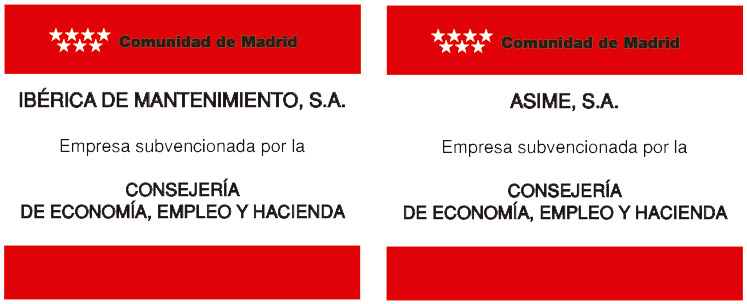What is a cookie?
A cookie is a small text file which is sent to your computer or mobile devie by the web server so that the website can remember some information about your browsing activity on the website. Cookies have been used for 20 years, since the first browsers appeared.
What is not a cookie?
It’s not a virus, nor a troyan, nor a computer worm, nor spam, nor spyware, nor causes pop-up windows.
What type of information is stored by a cookie?
The information collected by cookies does not personally identify you (credite card numbers, ID, ..). Stored information includes general information about your computer settings, your connection to the Internet, operating system and platform, IP address, your browsing patterns and timings of browsing on the Website, your location, etc.
What types of cookies exist?
- Essential cookies: These are cookies which are essential for the running os our websites. They help us identify registrans and subcribers users, in example.
- Analytical Performance Cookies: These cookies are used to monitor the performance of our websites (i.e. numer of page views, lenguage, time bads, …)
- Behavioural Advertising cookies: remember that you have visited a website and use that information to provide you with advertising which is tailored to your interest.
What’s the difference between first-party cookies and third-party cookies?
First-party cookies are generated by the website you are actually visiting and third-party cookies are generated by external services or providers like Facebook, Twitter, Google, etc.
What happens if I disable cookies?
Here are some examples:
- You could not share content from that website on Facebook, Twitter or on any other social network.
- Website could not adapt contents to your personal preferences as in some e-commerces.
- You could not access that website’s perssonal area (My account, My orders, …)
- E-commerce: you could not shop online.
- Custom configurations for lenguage or currencies could not be displayed.
- Website could not analyse visitors and traffic web.
- You could not write on blog, upload photos, publish public comments or rates. Website could not know if you’re a human or a botspam.
- Customized advertising could not be displayed.
- You could not use any social network as all them use cookies.
Can cookies be eliminated?
Yes. They can be eliminated as well as blocked, generally or on a specific website.
You can also change the preferences and settings in your web browser to control cookies.
How to control cookies in the most common browsers
Google Chrome. This can change deppending on your browser version:
- Click the Chrome menú icon in the upper right corner on the screen.
- Select Settings
- Click show advanced settings link
- In the Privacy section, click Content settings
- Click “All cookies and site data”.
- Cookies and site data dialog box displays, showing you how many cookies have been saved for each site that saved cookies on your computer.
- To delete all cookies from a site, click the X button on the right. Yo can also delete all the cookies for all the websites by clicking “Remove all”.
Internet Explorer. This can change deppending on your browser version:
- Click the gear button on the upper-right corner of the browser window and select “Internet Options”
- Click “Settings” in the Browsing history section.
- Click “View files”
- Windows Explorer displays the contents of the INetCache folder.
- Yo can select one or more cookie files and delete them either by right-clicking on them and selecting “delete” or pressing the Delete Key.
- To delete all the cookies, click in “delete” in the Browsing history section.
- To control cookies, go to “Privacy” in the Browsing history section and click “Advanced configuration”.
Firefox. This can change deppending on your browser version:
- Open the main menú and click “Options”
- Click Privacy in the list of items of the left side of the tab.
- If “Remember History” is selected, click the “remove individual cookies” link.
- If “Use custom settings for history”, click “Show cookies” button
- Cookies dialog box is displayed showing a list of websites that have put cookies on your computer. To delete an individual cookie, select it and click “Remove selected”. You can also delete all cookies from a specific website by slecting the website folder and clicking “Remove selected”.
- To delete all cookies for all websites, click “Remove all”
Safari. This can change deppending on your browser version:
- Click on the Settings in the upper right corner of the screen.
- Click on Preferences and Privacy.
- You can access the option Block cookies to control them.
Safari para iOS. This can change deppending on your browser version:
- Go to settings and click Safari.
- Click on Privacy and Security to access the option Block cookies to control them.
Android. This can change deppending on your browser version:
- Open browser and click “Menú” and “Settings”.
- Click on “Safety and Privacy”. You can select or deselect the option “Accept cookies”
Windows Phone. This can change deppending on your browser version:
- Open Internet Explorer. Click “More” and then “Settings”.
- You can select or deselect the option “Accept cookies”


